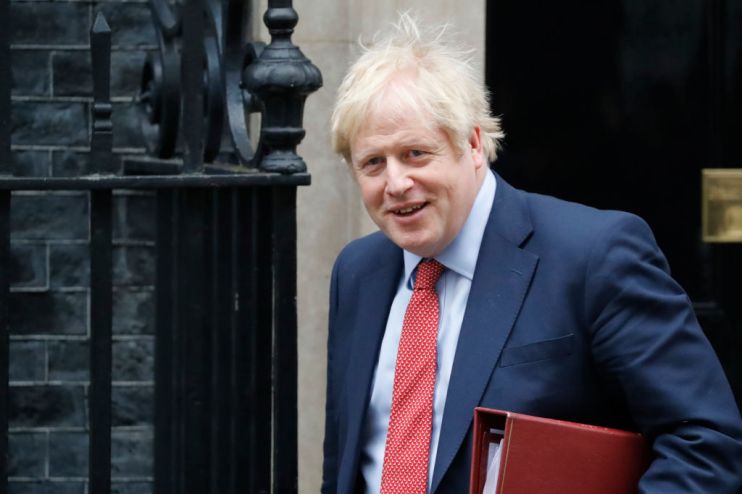British Chambers of Commerce tells PM to ramp up public spending

The government must sustain high levels of public spending to help the private sector recover from the coronavirus, according to one of the country’s largest business bodies.
British Chambers of Commerce (BCC) president Baroness Ruby McGregor-Smith has written to Boris Johnson to say it was “a time to be bold” and that “an expansionary fiscal policy, including a commitment to transformative infrastructure investment, will be needed…to pay down the national debt in the longer-term”.
McGregor-Smith’s letter comes after Thursday’s announcement that Johnson will announce the UK’s strategy for easing the coronavirus lockdown next week.
The BCC boss called for a three-phase plan to ease restrictions, labelling them restart, rebuild and renew.
The first two phases involve a “a phased reopening of the economy” and “building resilience for firms and households” respectively.
This would involve a staggered opening of different parts of the private sector, while also implementing a strict testing and tracing regime to ensure there is not a second peak.
McGregor-Smith also emphasised the importance of continued public spending and investment.
“Government should not shy away from sustaining high levels of public spending in order to restart and renew our communities and the economy in the short and medium-term, while not tying the hands of future generations,” she said.
“An expansionary fiscal policy, including a commitment to transformative infrastructure investment, will be needed in order to generate the returns that will help to pay down the national debt in the longer-term.”
The letter was met with derision from free market think tank the Institute of Economic Affairs.
The institute’s economics fellow Julian Jessop said McGregor-Smith’s call for expansionary fiscal policy was “reckless, not bold”.
“Sustained high levels of public spending, on top of the significant increases in investment that are already planned, would risk another fiscal crisis,” he said.
“It would be far better if the government were bolder in other ways, including by reducing the burden of taxation and regulation, especially on small businesses, and reforming planning laws that are holding back housebuilding and the transformation of the High Street.
“Simply spending more of other people’s money is rarely the right answer.”
The Office for Budget Responsibility (OBR) released projections last month predicting that net borrowing could hit £271bn this year.
The figure is five-times higher than the watchdog’s March forecast and would be the UK’s largest ever in peacetime.
Johnson moved to assure people at Thursday’s press briefing that he would not impose a period of austerity after the crisis to cut the deficit.
“You know what my instincts are – I think the economy will bounce back strongly,” Johnson said.
“I think this government will want to encourage that bounce back in all kinds of ways, but I’ve never particularly liked the term [austerity] and it’s certainly not part of our approach.”